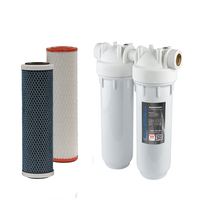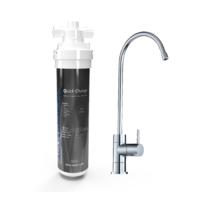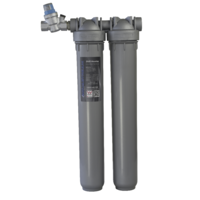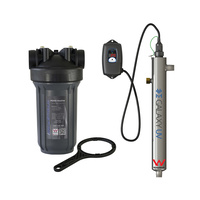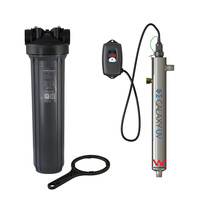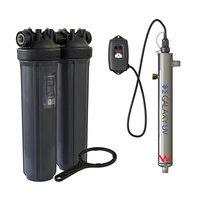Water Filter Systems

Drinking pure water is undoubtedly one of the most important things you can do in your life. While local authorities strive to deliver safe water to our homes and workplaces, the journey through many kilometres of pipelines and reservoirs can compromise its purity. That’s where Aquastream’s water filtration systems step in. Our state-of-the-art water solutions are designed to eliminate contaminants and deliver crisp, clear and safe water straight into your glass. Explore our product range below and discover the perfect water filter system for your home or office. Need guidance? Our friendly team is just a call away at 1800 446 500, ready to help you find the best tap water filter system for your needs.
Explore Aquastream’s collection, featuring mains water filtration systems and sleek under-sink water filter solutions, along with rainwater filter systems, whole home rain water filter systems and specific filtered rainwater taps. Our range includes various configurations and features, tailored for almost every individual need. Drink confidently with a premium water purification system from Aquastream.
Take the time to browse our range of water filter systems, if you need help, call our team on 1800 446 500, we are glad to help you make the right choice.
FAQs
There are numerous types of water filtering systems, each suited to different needs:
- Jug Filters: Simple and convenient, jug filters are ideal for individuals or small families looking for a portable water filtration system. They are best suited for filtering drinking water in small quantities and are a cost-effective option for those seeking a basic level of water purification.
- Faucet-Mounted Filters: This type of tap water filter system offers the convenience of filtered water straight from your tap, making it ideal for cooking and drinking water needs. Faucet-mounted water filtering systems are easy to install, attaching directly to your faucet, and allow you to switch between filtered and unfiltered water.
- Under-Sink Filters: Installed out of sight under the sink, these systems provide a higher filtration capacity compared to jug or faucet-mounted filters. Often installed along with Whole-House filters, these systems typically offer a finer level of filtration, perfect for high-purity drinking water. They are connected to your water line, providing continuous access to purified water.
- Countertop Filters: These water treatment systems strike a balance between ease of installation and filtration efficiency. They sit on the counter and connect to the faucet with a tube, making them a great choice for renters or those who prefer a non-permanent filtration system.
- Whole-House Filters: As the most comprehensive option, whole-house filters are installed at the main water entry point to the home, ensuring that every drop of water used – whether for drinking, cooking, bathing, or laundry – is filtered. This water treatment system is ideal for households concerned about contaminants affecting not just drinking water but also water used in showers, washing machines, and more.
- Reverse Osmosis Water Filter: Known for providing an extremely high level of filtration, reverse osmosis systems are capable of removing a wide array of contaminants, including dissolved salts and impurities. These water filtering systems are typically installed under the sink and are ideal for households seeking the highest quality of water purification for drinking and cooking.
- Ultra Violet (UV) Water Filters: Utilising ultraviolet light, these systems are designed to kill bacteria and viruses, ensuring the microbiological safety of the water. Often used in conjunction with other types of filters, UV disinfection systems are well-suited for areas where the microbiological contamination of water is a significant concern.
- Water Softeners: Water softeners are specialised filtration systems designed to remove or reduce the concentration of minerals, particularly calcium and magnesium ions, from hard water. They work by exchanging calcium and magnesium ions with sodium or potassium ions through a process called ion exchange.

